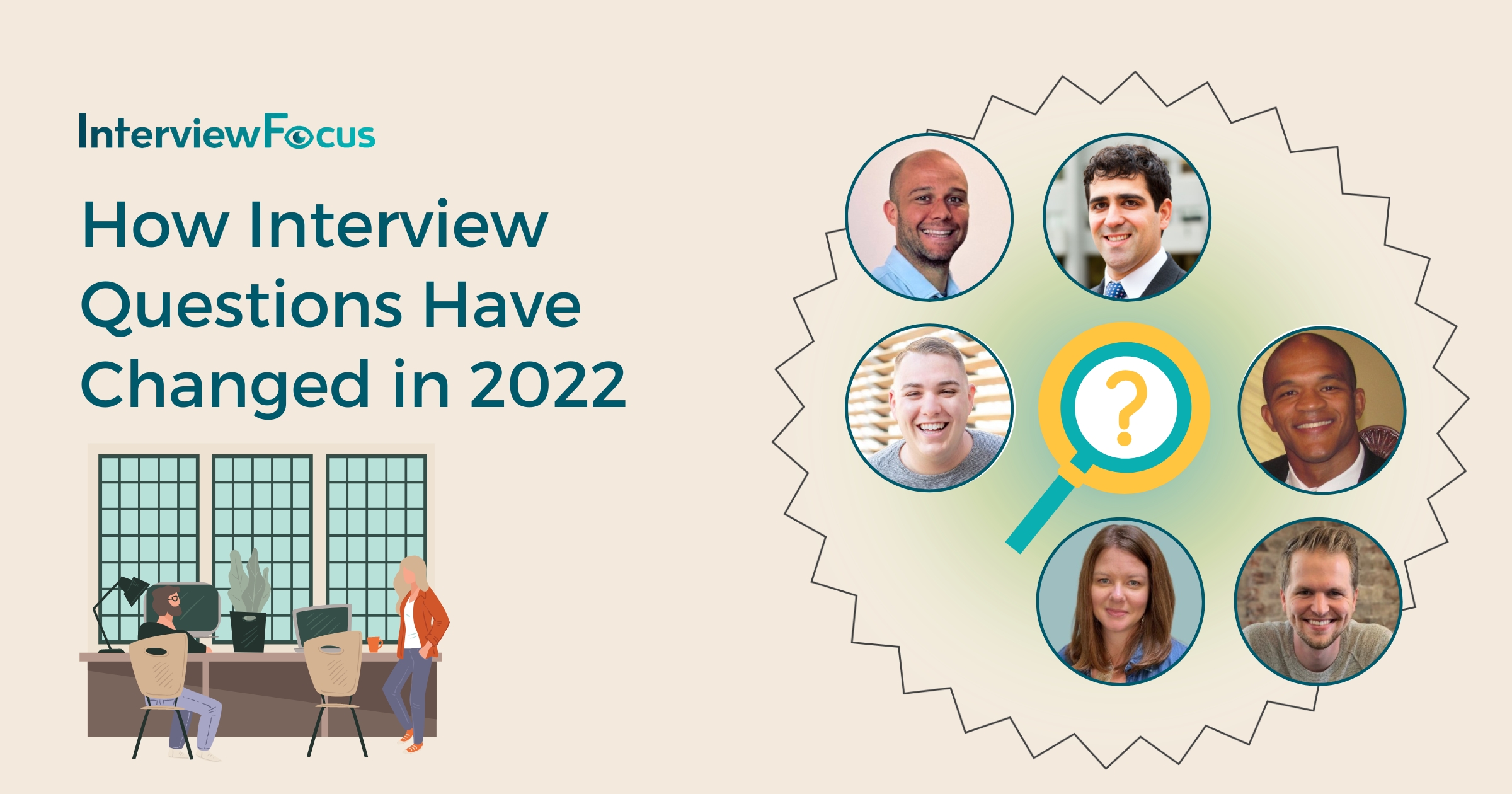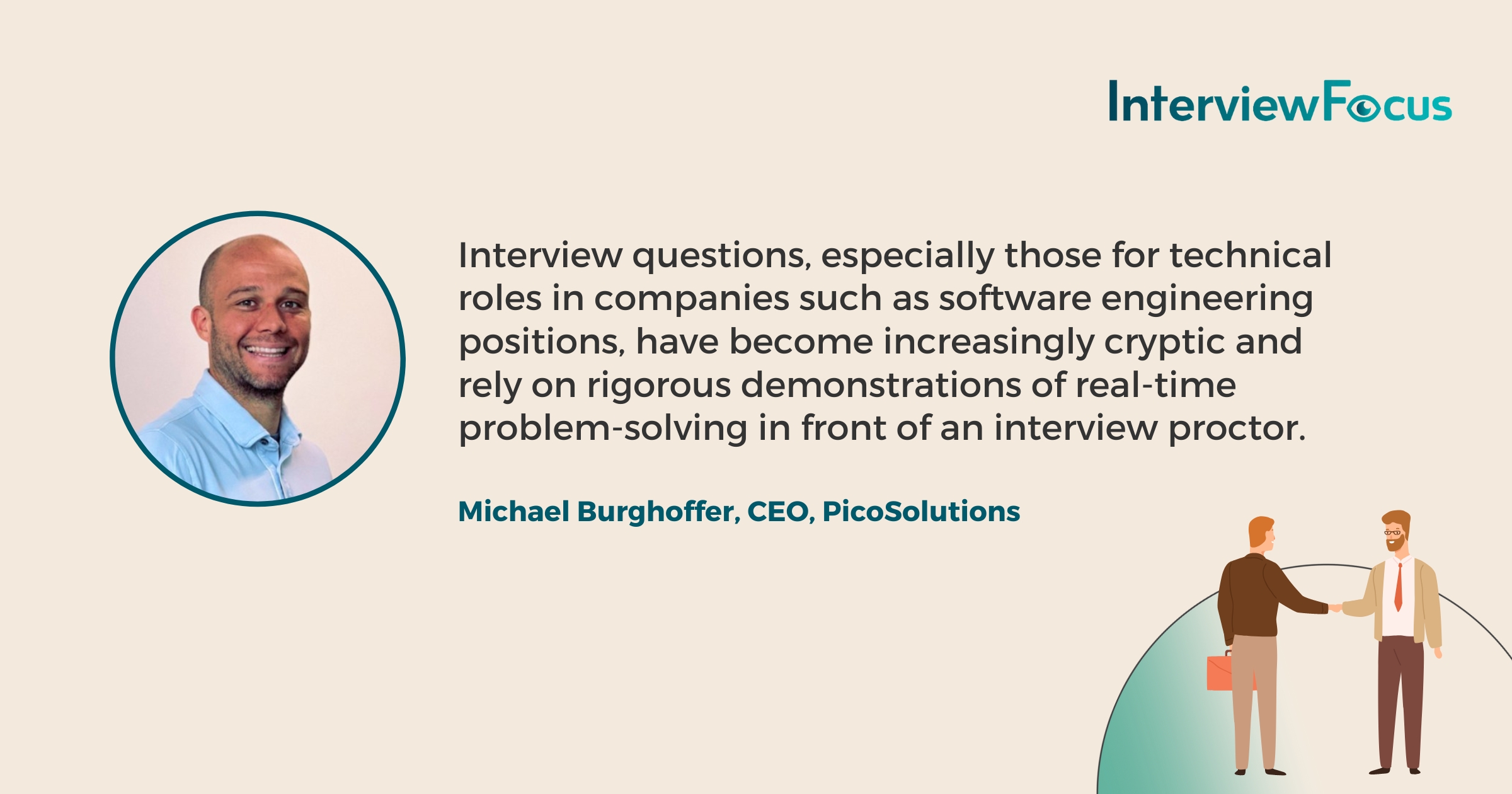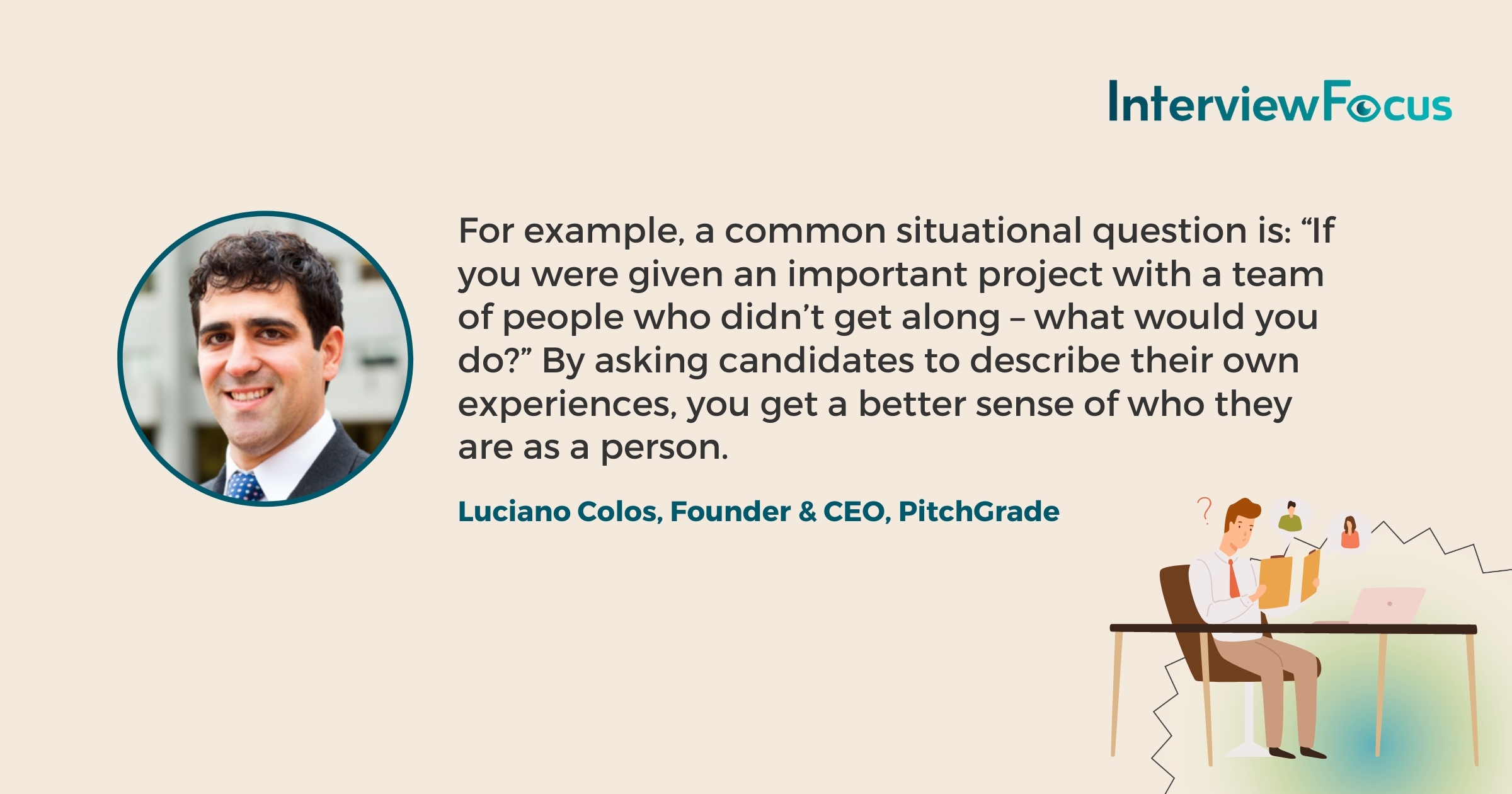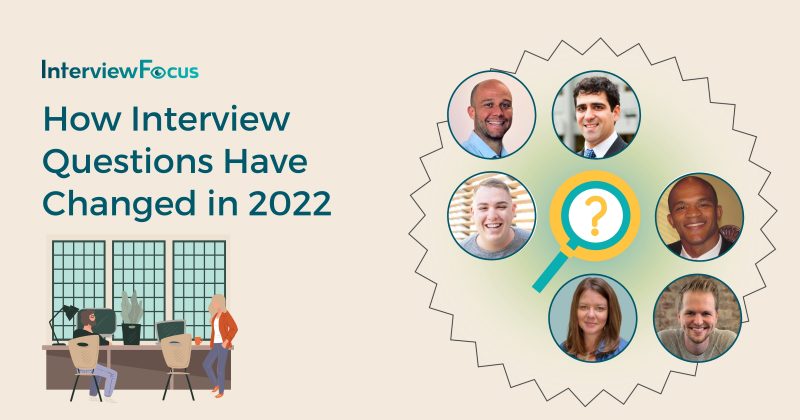From an uptick in DEI awareness questions to understanding more about a candidate’s soft skills, here are the 11 answers to the question, “As we prepare for the new year, what is one takeaway you have on how interview questions have changed during the year 2022?”
- Uptick in DEI Awareness
- Questions are Sculpted to Find Personal Qualities
- More Emphasis On Long-term Fit and Aspirations
- Questions About Employees’ Preferences Are More Common
- Need to Know Productivity Levels Under No Supervision
- Avoid Resume Gap Questions
- Technical Interviews Are Becoming More Difficult
- Shift from Behavioral to Situational Questions
- Shift From “When Are You Working?” to “Where Are You Working?”
- Be Prepared to Answer Questions About Uncertainty
- Understand More About a Candidate’s Soft Skills

Uptick in DEI Awareness
In 2022, many interview questions reflect many companies’ ideologies concerning diversity, equity, and inclusion. Aspiring employees often encountered questions about their thoughts on DEI. Major corporations in the US and many parts of the world are adopting the DEI ideology as a part of their company culture. Therefore these companies are more concerned about candidates’ views on this ideology and will most likely ask relevant questions during interviews.
Tasia Duske, CEO, Museum Hack
Questions are Sculpted to Find Personal Qualities
As we approach the New Year, it is clear that interviews and the way of business have changed. In every interview, we want to know about you and who you are as a person. However, interview questions have now been sculpted and based more on you as a person and the qualities you bring rather than quantity.
For example, if you don’t have that many years of experience but you are open to training and learning, you will likely make it far in the interview process or get offered the job. Although years of experience are crucial for executive and bigger roles, the qualities you bring to the workforce will be what get you there. With the right attitude, charisma, and energy you will nail your next interview and leave a lasting impression.
Sacha Ferrandi, Founder & Principal, Source Capital
More Emphasis On Long-term Fit and Aspirations
In the aftermath of the Great Resignation, employers are more conscious during the interview process about, not just whether the applicant has the skills and experience for the job, but whether they’re likely to stick around long-term if they’re hired. Identifying what they’re looking for from their workplace can help to determine this.
Questions about work style, ideal work environment, culture, and long-term career aspirations can help companies identify applicants who are most likely to thrive as employees and stay on with the company through and past the 1-year mark. Some companies already asked these kinds of questions of applicants pre-pandemic, but it wasn’t an aspect of nearly as many interviews prior to 2022.
Jon Hill, Chairman & CEO, The Energists
Questions About Employees’ Preferences Are More Common
Against the background of The Great Resignation and the tight labor market, employers are keen to meet employees’ needs to ensure the right fit. In 2022, more employers began asking candidates about their preferences around key issues such as wellness, bonuses, childcare, work schedules, and social corporate engagement. Going forward, candidates should be prepared to answer questions about their preferences around remote, hybrid or in-office work models, wellness activities, and the charities they contribute to.
Come to the interview table knowing what you want to ensure is that the employer is a good fit and that you align with the employer’s overall vision. For example, if you prefer working remotely, come to the interview with solid bullet points to support your preference, but, more importantly, you should show your employer how your vision aligns with theirs and how you can help them solve specific problems.
Ben Lamarche, General Manager, Lock Search Group
Need to Know Productivity Levels Under No Supervision
This is something a lot of employers are trying to find out about their employees and potential employees. The level of competency and output changes a lot when employees are no longer under supervision. And after Covid, employers saw the need of having employees who can still keep the company running even from the comfort of their homes.
Because of this, many interviewers are focusing on how the interviewee would behave in the event they had to work unsupervised. Questions that are mainly asked to find this out is asking the history of the interviewee with unsupervised work. Whether they have ever worked unsupervised and how they did. Have they ever worked from home? Their level of morale when working from home.
Lydia Mwangi, Content Writer, Barbell Jobs
Avoid Resume Gap Questions
Many business and HR leaders now avoid asking questions about resume gaps. Life happens with or without a pandemic – such as tending to an ill family member, being a stay-at-home mom, celebrating new life, or simply going on an adventure to learn about the world and yourself. Whatever the reason for your resume gap, it’s not our place to ask or judge.
Susan Shaffer, President, Pneuma Nitric Oxide
Technical Interviews Are Becoming More Difficult
Interview questions, especially those for technical roles in companies such as software engineering positions, have become increasingly cryptic and rely on rigorous demonstrations of real-time problem-solving in front of an interview proctor. This shift is a result of companies looking for new ways to accurately assess the skills of job candidates and ensure that they are adequately prepared for their roles.
Michael Burghoffer, CEO, PicoSolutions

Shift from Behavioral to Situational Questions
One trend I’ve seen is that managers are shifting away from the standard behavioral interview questions and focusing on situational questions instead. These questions are designed to give candidates an opportunity to share their own experiences and thoughts on a particular situation. They’re a great way to get a deeper understanding of what the candidate is like and what they’re capable of.
These questions are typically based on hypothetical scenarios and require candidates to make a decision or take action. For example, a common situational question is: “If you were given an important project with a team of people who didn’t get along – what would you do?” By asking candidates to describe their own experiences, you get a better sense of who they are as a person.
Luciano Colos, Founder & CEO, PitchGrade

Shift From “When Are You Working?” to “Where Are You Working?”
Interview questions have changed during the last year from “When are you coming in to work?” to “Where are you going to work?” With businesses now using everything from traditional offices to remote work to hybrid, more options mean more candidates. Increasingly, remote work is more expected and a business’ flexibility will enhance its options for recruiting top talent.
Being open to change with where employees work will allow for more conversation and a happier workforce. Interview questions have changed in 2022 because instead of assuming a candidate will be working from the office, it can now mean they’re working from anywhere around the world.
Temoer Terry, Partner, Mommy Care Kit
Be Prepared to Answer Questions About Uncertainty
If 2022 has taught us anything, it was to expect the unexpected. Consequently, recruiters and hiring managers are asking additional questions about how candidates approached uncertainty in their careers. Companies want employees who are ready to tackle ambiguity with confidence. If you are an interviewee, be prepared with powerful stories about how you navigated and responded to ambiguity, as well as the results of your efforts.
Dr. Kyle Elliott, Founder & Career Coach, CaffeinatedKyle.com
Understand More About a Candidate’s Soft Skills
One of our biggest takeaways from 2022 was an increased focus on understanding a candidate’s soft skills. Companies are looking beyond technical capabilities and becoming more interested in how someone will fit into their culture, as well as their enthusiasm, ability to collaborate, and creative problem-solving skills.
With this new focus on soft skills, interview questions have shifted to focus more on a candidate’s attitude towards the job, how they approach difficult situations, and their communication style. This shift has made interviews more engaging and helped us better understand potential employees and see if our teams will be well-aligned.
Ryan Delk, CEO, Primer





